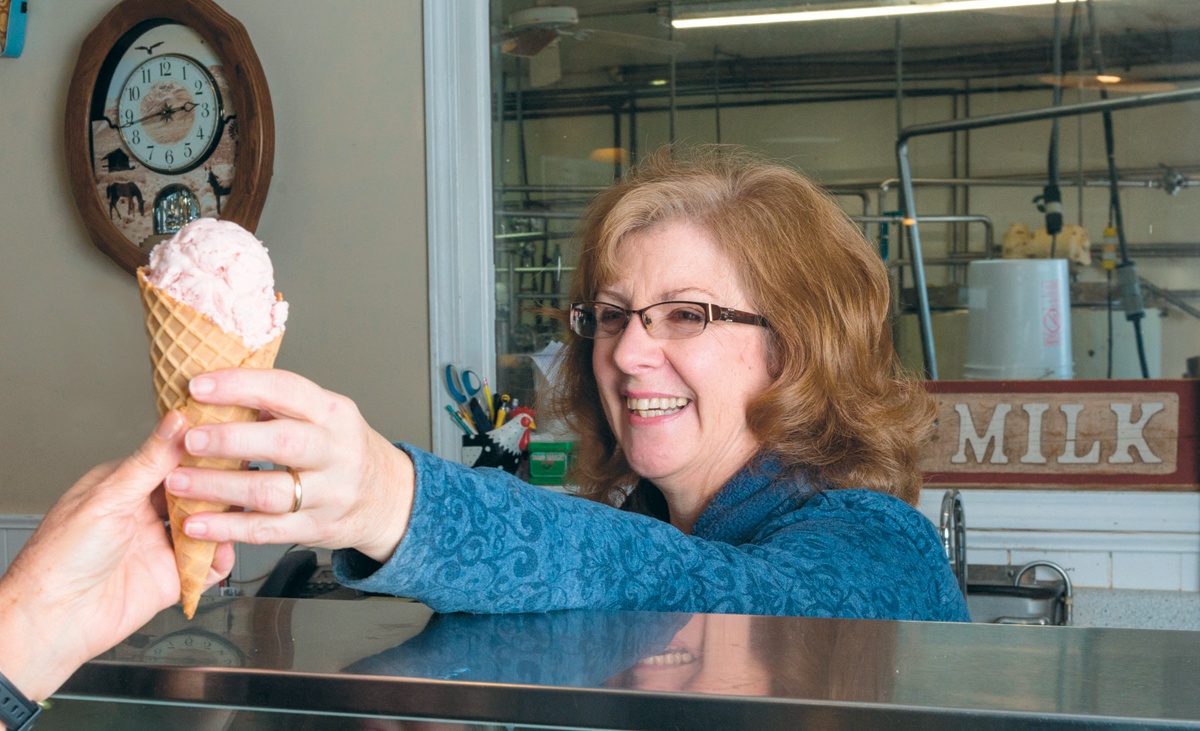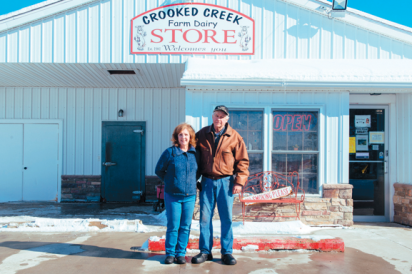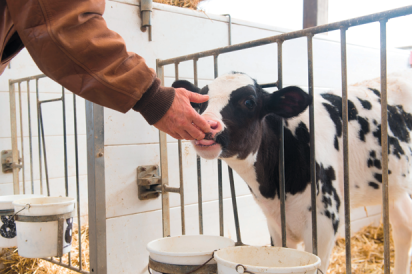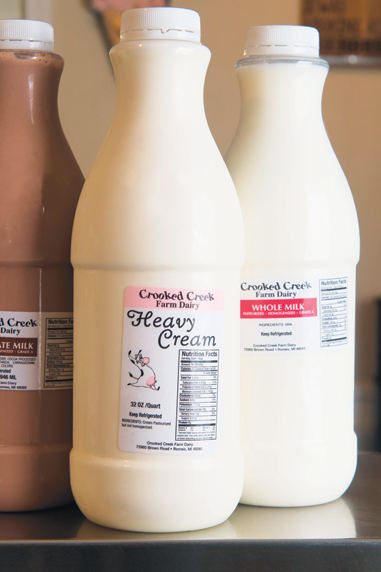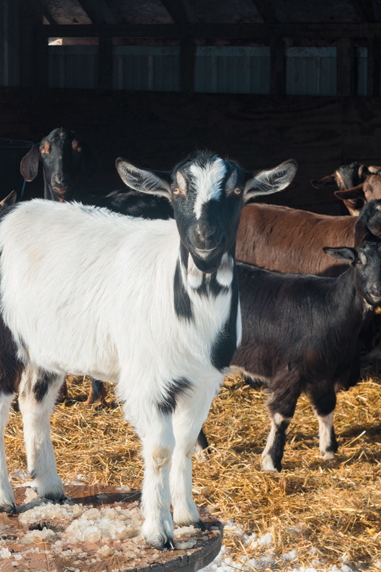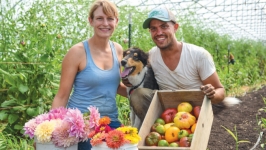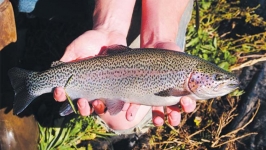Dairy Farming the Old-fashioned Way at Crooked Creek
It started with taste.
After marrying a dairy farmer in 1975, Dory Hill started drinking the unprocessed milk at Crooked Creek Farm Dairy and loved it. “When I’d go elsewhere, the milk didn’t taste right,” she says. “It would have a chemical taste to me.” At the time, her husband, Greg Hill, was sending his milk off site to be bottled, and he set her straight: “You don’t know what happens to it after it leaves the farm.”
But there was more than taste behind the couple’s decision to grow their own feed, process their own milk and avoid hormones, steroids and anything genetically modified. Dory, who grew up next to another dairy farm, has a severe case of Lyme disease. She manages it in part by extremely close scrutiny of her diet. “The food we eat makes such a difference,” she says. Much of what she has learned is reflected in the way the couple manages the farm.
The farm, located north of Romeo, is 369 acres, most of which is used for crops to feed their 100 dairy cattle. Greg’s father started the farm; Greg took it over when he was 15. In 1981, he decided to process his own milk, and the farm became a farm dairy.
“We decided to give the people real milk,” Dory says. “And that was when interest rates were 15–16%.” Nevertheless they took the plunge and installed a bottling plant. Today, the entire process is done in-house, from growing feed to milking and bottling. Fourteen people, including the Hills’ daughter Jennifer Russell, help out with everything from mucking out stalls (jokingly called the Crooked Creek workout) to dipping ice cream in their farm store, which is open seven days a week.
“We aren’t big,” Dory says as she leads a visitor around the farm on a sunny, cold winter day. Indeed, the dairy site is compact; the family home is only steps away from the store and barns. The milking cows have a large, open-air barn for shelter. In the calf barn, two rows of curious black-and-white faces, each in its own stall, turn to see who has come to visit.
Russell lives next door. “Our daughter is phenomenal with the animals,” Dory says. Two grandsons, ages 11 and 15, also help out, driving the tractor, hauling bales of hay and loading wagons. Dory runs the bottling machines (the cows produce 5,000 pounds of milk a day), does the paperwork and whatever else needs to be done.
Dory credits her husband with identifying the effects of pesticides and herbicides, including those in GMO seed, and deciding to go back to basics. Now, he cultivates his crops the old-fashioned way. “We do a very minimal spraying just to get ahead [of the weeds] and then my husband cultivates for many, many hours,” she says. “There aren’t many around here that cultivate. That’s a step a farmer doesn’t have to take with GMOs.”
At times they’ve had to convince inspectors that their techniques pass muster. For example, they use only water to sanitize the milk-processing equipment; inspectors wanted chlorine but, after testing, came around. Dory has even testified in Lansing in support of legislation to allow labeling of milk to show that it’s made without added hormones.
Because of the way it’s processed, milk from Crooked Creek Farm Dairy can be frozen. “We don’t use any water in our milk, we don’t use any powder,” Dory says. “When you go into a grocery store and the milk looks yellow or green, that’s their water.”
Crooked Creek offers all the usual choices: chocolate milk, heavy cream, and different fat levels of milk such as whole and low-fat. At the holidays they also make a very popular eggnog that sells out. April through October, 17 flavors of ice cream are offered, made with cane sugar because, unlike beet sugar, it is non-GMO. Spring visitors to the farm will also find a petting farm with calves and goats.
In addition to their own products, their tiny store offers other non-GMO, organic and gluten-free packaged foods (think gluten-free ice cream cones) and features a selection of products from other local food producers, including honey, maple syrup, chocolates and dog treats. “I have to eat all organic, so why not have it in our store?” Dory says.
The store also offers frozen meat from their own steers. “It takes us 24 months to raise a steer” without steroids or hormones, “versus 13 months,” Dory says. “It has real flavor. Of course, you’re going to pay a little bit more a pound.”
One thing they don’t sell is raw milk. “We have a lot of doctors that send their patients here. A lot of doctors are looking for raw milk,” Dory says. She doesn’t sell it because she suspects it’s the reason she and her nine siblings all have Lyme disease.
The Hills are so confident in their approach that four years ago they expanded their farm. Dory describes the added land as dead back then. Now, “It’s live soil,” producing feed crops.
Crooked Creek Farm Dairy products can be found within a 20-mile radius of the farm, at stores including Metamora Foodland, Papa Joe’s in Rochester, Peacock Poultry in Troy and Vince & Joe’s in Shelby Township.
Learn more at CrookedCreekFarmDairy


